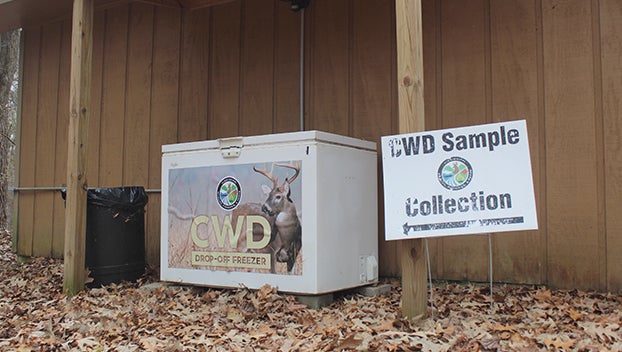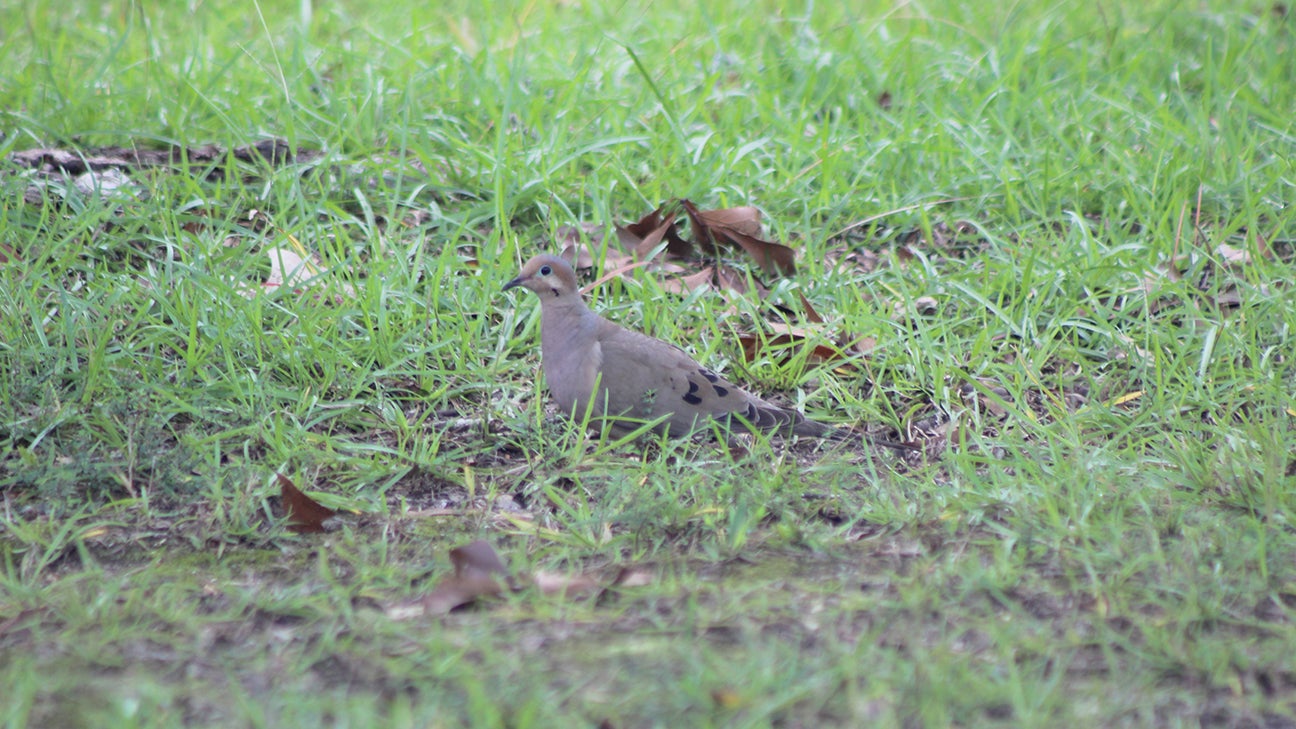Research raises questions of human health risk with Chronic Wasting Disease
Published 2:00 pm Thursday, April 18, 2024

- Chronic Wasting Disease samples must be submitted if you harvest a buck during velvet season. Sample coolers look like this one pictured here at Natchez State Park. (Hunter Cloud | The Natchez Democrat)
JACKSON — A pair of deer hunters from an area where CWD positive deer lived, died after contracting Creutzfeldt-Jakob Disease (CJD) according to a recently presented poster at the Neurology 2024 Annual meeting in April. The abstract of the presentation is available on the Neorology.org website.
The poster does not disclose where the associated CWD cases were or where the men lived. Instead, the research simply points out the men died of CJD after possible exposure to CWD and is “suggestive of the potential prion transmission of CWD infected deer to humans.”
The research presented at the Neurology annual meeting reported a 72 year old man with a history of consuming meat from a CWD infected deer population “presented rapid onset confusion and aggression.” His friend, who had eaten venison from the same deer population, recently died of CJD.
Researchers reported the 72-year old man died within a month of initial presentation of symptoms despite aggressive symptomatic treatment of seizures and agitation. A postmortem diagnosis confirmed the disease was “sporadic CJD with homozygous methionine at codon 129.”
According to the research abstract “the patient’s history, including a similar case in his social group, suggests a possible novel animal to human transmission of CWD.” Ongoing research with primates and mice models show the cross species transmission of CWD is possible.
“Due to the challenge of distinguishing sCJDMMI from CWD without detailed prion protein characterization, it is not possible to definitively rule out CWD in these cases,” the abstract states. “Although causation remains unproven, this cluster emphasizes the need for further investigation into the potential risks of consuming CWD infected deer and its implications for public health.”
The poster concluded it is possible sporadic CJD cases may occur in regions with confirmed CWD infected deer populations which could be indicative of potential cross-species prion transmission. The Center for Disease Control reminds hunters to test their deer for CWD. Sampling helps the MDWFP survey for the disease in new parts of the state.
While the poster raises questions about CWD and humans it does not fully answer them. “Further research is needed to determine the risk of CWD spreading to humans,” the abstract states.
History of CWD
Mississippi found its first case of Chronic Wasting Disease in 2017 in Issaquena County. Since then, there have been 317 CWD positives found across the state. Out of 82 counties in Mississippi, 14 counties have detected Chronic Wasting Disease.
The Center for Disease Control reports the disease has spread in free-ranging elk, moose and deer herds in 32 states and four Canadian provinces.
Chronic Wasting Disease, a 100 percent always fatal disease, was first discovered in Colorado State University research pens in 1967. By the 1980s, CWD was found in wild deer populations. The disease is caused by an infectious prion.
The Center for Disease Control warns hunters should not consume any meat of infected deer. While there was no evidence of humans contracting CWD from deer, the CDC’s recommendation is for hunters to not eat CWD positive deer meat.
The research may have shown why the CDC warns of the potential health risk. CJD is a rapidly progressive central nervous system disorder caused by misfolded prion proteins. According to the National Institute of Neurological Disorders and Strokes, on average there are 350 cases of CJD annually. CJD could occur spontaneously, be inherited or transmitted by contact with infected tissue such as the consumption of infected meat.
Bovine Spongiform Encephalopathy, or Mad Cow Disease, is usually the disease most associated with prion transmission from animals to humans. A BSE outbreak in the United Kingdom started in 1984 and by 1994 humans who had consumed infected beef began to show signs of vCJD. By 2016, 178 people died from vCJD.





